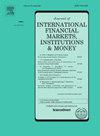相对金融工资和不平等:无形资产的作用?
IF 6.1
2区 经济学
Q1 BUSINESS, FINANCE
Journal of International Financial Markets Institutions & Money
Pub Date : 2025-06-24
DOI:10.1016/j.intfin.2025.102192
引用次数: 0
摘要
我们使用(i)涉及多层次嵌套的生产框架和(ii)简化形式分析来研究无形资本在相对金融工资增长中的作用。我们发现,在金融领域,技术劳动力和无形资本之间的互补性的程度和效果比在市场经济的其他领域更为明显。相对较强的非熟练劳动力替代可能性和行业技术变革强化了这种互补性对金融技能溢价的正向效应。尽管金融业在整体经济活动中所占的比重不到十分之一,但却抵消了全国熟练工人与非熟练工人工资差距下降的近三分之一。因此,我们发现金融对收入不平等的贡献过大。该行业无形资本的增长加剧了这一趋势。最后,我们的研究表明,金融放松管制、全球化、银行业竞争和国内信贷扩张对相对金融工资有正向影响。同时,更严格的劳动力市场保护抑制了银行业竞争的影响。本文章由计算机程序翻译,如有差异,请以英文原文为准。
Relative finance wages and inequality: A role for intangibles?
We investigate the role of intangible capital in the growth of relative finance wages using (i) a production framework entailing multi-level nesting and (ii) reduced-form analysis. We find that the degree and effects of complementarity between skilled labor and intangible capital are much more pronounced in finance than in the rest of the market economy. The stronger positive effects of such complementarity on finance skill premia are reinforced by relatively stronger unskilled labor substitution possibilities and technical change in the sector. Despite accounting for under a tenth of overall economic activity, finance offsets up to almost a third of declines in skilled–unskilled wage disparities nationally. We thereby find that finance contributes inordinately to income inequality. Intensified intangible capital growth in the industry stands to exacerbate this trend. Finally, our study suggests that financial deregulation, globalization, banking competition, and domestic credit expansion positively affect relative finance wages. Stricter labor market protection meanwhile dampens the impact of banking competition.
求助全文
通过发布文献求助,成功后即可免费获取论文全文。
去求助
来源期刊
CiteScore
6.60
自引率
10.00%
发文量
142
期刊介绍:
International trade, financing and investments, and the related cash and credit transactions, have grown at an extremely rapid pace in recent years. The international monetary system has continued to evolve to accommodate the need for foreign-currency denominated transactions and in the process has provided opportunities for its ongoing observation and study. The purpose of the Journal of International Financial Markets, Institutions & Money is to publish rigorous, original articles dealing with the international aspects of financial markets, institutions and money. Theoretical/conceptual and empirical papers providing meaningful insights into the subject areas will be considered. The following topic areas, although not exhaustive, are representative of the coverage in this Journal. • International financial markets • International securities markets • Foreign exchange markets • Eurocurrency markets • International syndications • Term structures of Eurocurrency rates • Determination of exchange rates • Information, speculation and parity • Forward rates and swaps • International payment mechanisms • International commercial banking; • International investment banking • Central bank intervention • International monetary systems • Balance of payments.

 求助内容:
求助内容: 应助结果提醒方式:
应助结果提醒方式:


